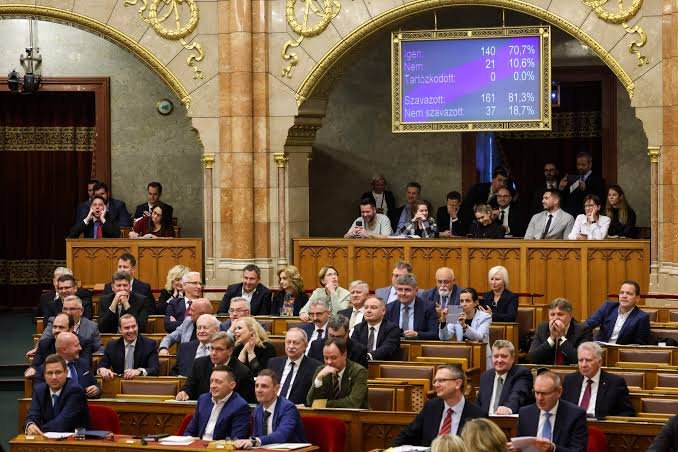On April 14, 2025, the Hungarian Parliament approved a series of controversial constitutional amendments that have drawn widespread criticism both domestically and internationally. Among the most contentious provisions is a new law that effectively bans public events organized by the LGBTQ+ community, significantly curtailing the rights to freedom of expression and assembly for sexual and gender minorities. The amendments mark a further tightening of Hungary’s conservative policies under Prime Minister Viktor Orbán’s government, which has faced repeated accusations of undermining democratic values and human rights.
In addition to restricting LGBTQ+ public visibility, the newly adopted constitutional changes include a mandate recognizing only two genders—male and female—effectively erasing legal acknowledgment of non-binary and transgender identities. Human rights advocates warn that this move will deepen discrimination, limit access to gender-affirming healthcare, and further marginalize vulnerable populations within Hungarian society.
Another notable provision in the amendments is the constitutional protection of the “right to use cash,” a clause that aims to safeguard physical currency as a legal means of payment in the face of the growing shift toward digital transactions. Supporters argue that this measure preserves consumer freedom and protects the elderly and rural populations who rely more heavily on cash. However, critics suggest it may also serve to hinder financial modernization and limit transparency in economic activities.
The constitutional changes have sparked protests and condemnation from civil society organizations, opposition politicians, and international observers, including the European Union and human rights watchdogs. Many view the amendments as part of a broader trend of democratic backsliding in Hungary, where the government continues to tighten its control over public life, media, and the judiciary. As global attention turns to Budapest, these developments raise serious concerns about the future of civil liberties and minority rights in the country.


















Fausta
Ok
Shema Benoit
Hhhjh
Suhuyini
Okay
Keydonn
What
Adungchaab
What?